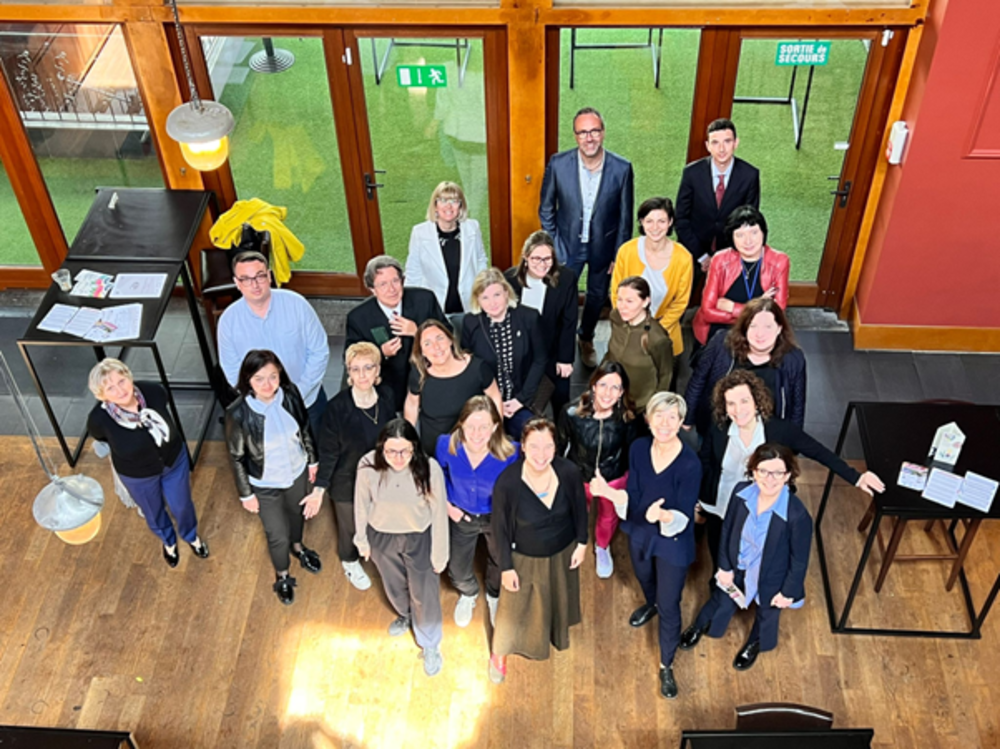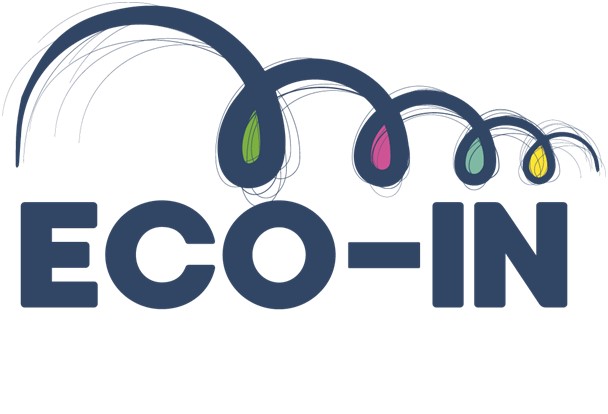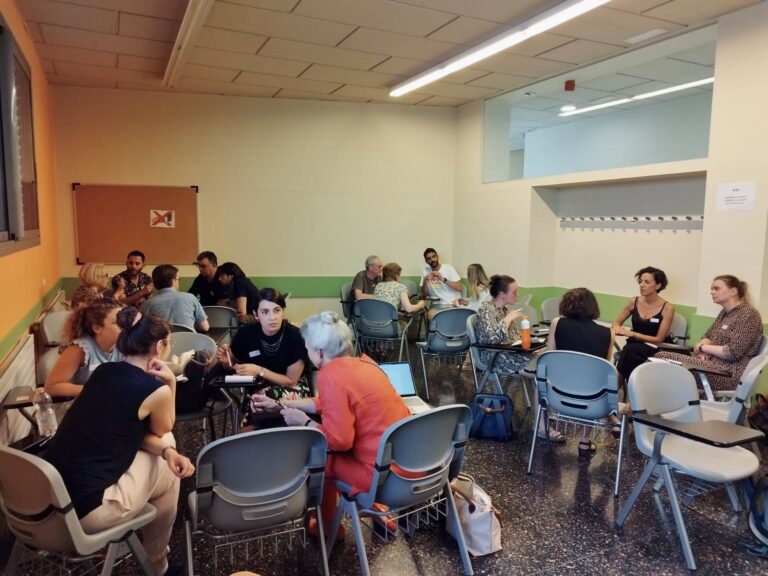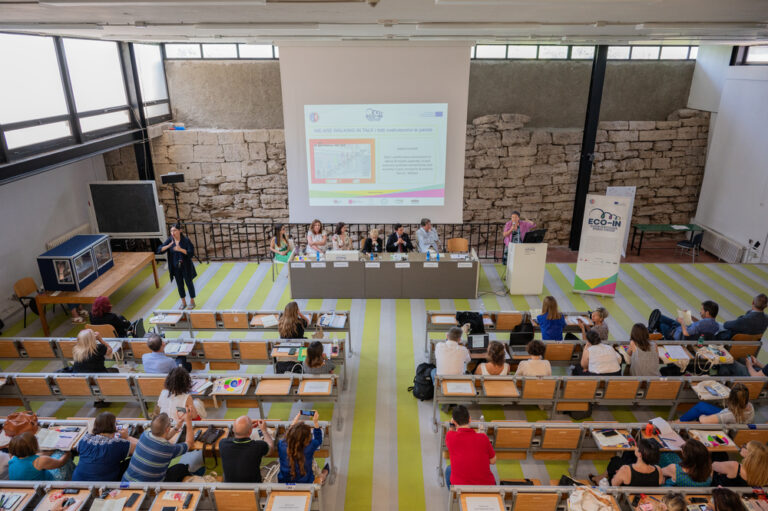An ecological approach to inclusion: ECO-IN High Level Policy Conference

On 23 May, SOLIDAR Foundation hosted in a hybrid format in Brussels the High Level Policy Conference in the frame of the ERASMUS+ co-funded ECO-IN project. The Algorithm for New Ecological Approaches to Inclusion (ECO-IN) project was launched in 2019, with the aim of developing new and innovative training model to generate inclusive schools and communities. In order to achieve this, the project consortium, comprising the University of Perugia, FORMA.Azione, the Lithuanian Education Trade Union, University of Urbino, MIRADA LOCAL, the School Inspectorate of Alba County (Romania) and SOLIDAR Foundation, ran in-depth research on the inclusion practices in primary and secondary education in Belgium, Italy, Lithuania, Romania, Spain.
Based on the needs identified across these EU member states, and following further research at EU level, the project delivers indicators for monitoring successful inclusion practices, policy recommendations to boost inclusion, and training to prepare all education stakeholders (teachers, school heads, policymakers, parents, families) to actively participate in a system that puts the learners’ well-being and development at the centre of their work.
The Conference kicked off with a presentation on the project by Annalisa Morganti and Francesco Marsili from the University of Perugia. They called for an ecological model of Inclusive Education and, in this regard, advocated for a paradigm shift at the European level and explained in-depth how the ECO-IN algorithm functions and illustrated this with some preliminary results. This was followed by a presentation of the project’s insights, the draft ECO-IN Manifesto and Policy Recommendations by Alexandra Matthys (SOLIDAR Foundation), which illustrate how the project results make clear that there is a discrepancy between policies on school inclusion and reality, and the importance of training on inclusive education.
The High Level Conference engaged a wide range of stakeholders in education and training at EU level that discuss the preliminary policy conclusions of the ECO-IN project. During the Roundtable discussion, Maria Podlasek-Ziegler (DG EAC, European Commission) applauded the project’s ecological approach, calling it the key for success. Providing participants with further examples of how EU aims to tackle school inclusion, she recalled the Council Recommendation on Pathways to School Success. Tatjana Babrauskiene (EESC Member, Workers Group) emphasized the importance of taking into account the digital aspects of the 21st century classroom, mentioning the lessons learned from the Covid pandemic. She underlined that when digital tools are introduced in the classroom, different needs of learners should be considered and that there is no ‘one size fits all’ in this regard.
Giuseppina Tucci (OBESSU) noted that there is a decline in the quality of inclusion in school rather than progress and that a wider interpretation of inclusion is needed, including aspects such as mental health. She highlighted that inclusion cannot be achieved if students are not engaged. When speaking about the whole school approach, Ekaterina Efimenko (ETUCE) remarked that not only teachers should be mentioned but the concept of ‘education personnel’ should be introduced, emphasizing the need for teachers to support personnel. Veronica Arduino (LLLP) applauded the holistic approach of the ECO-IN project towards inclusion and highlighted the importance of such an approach in the view of lifelong learning.
In his concluding remarks, MEP Marcos Ros Sempere (S&D Group) echoed the need for a European definition on Special Educational Needs. Further, he underlined that efforts need to be made to prevent digitalization to become a factor of exclusion, so no one is left behind.
Keep an eye on the ECO-IN project website to read the final version of the ECO-IN Manifesto, Memorandum of Understanding and project’s policy recommendations.
.





